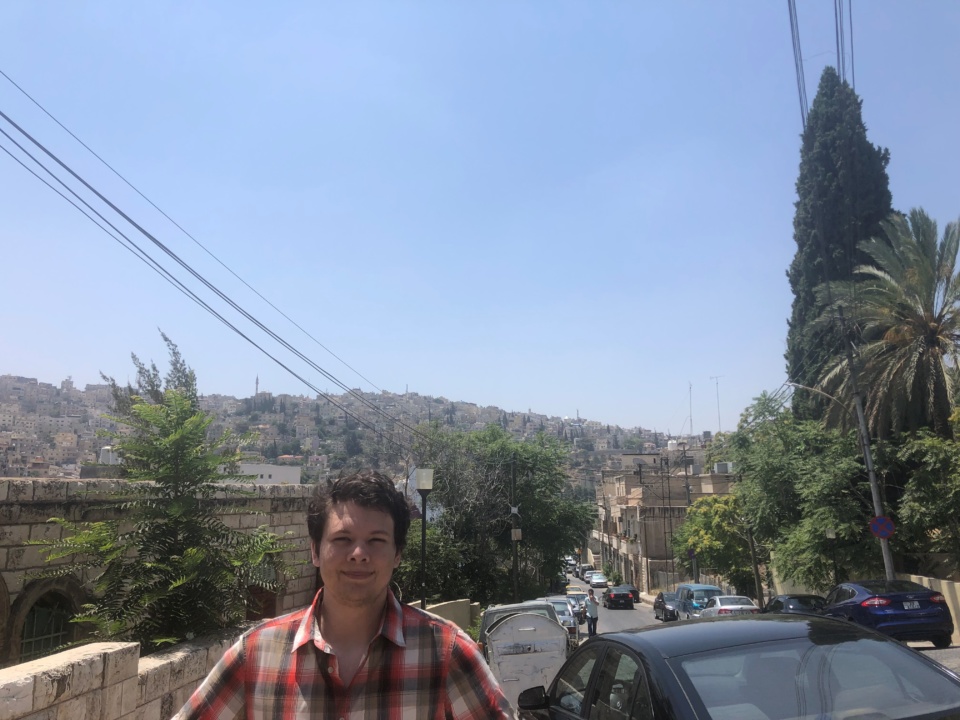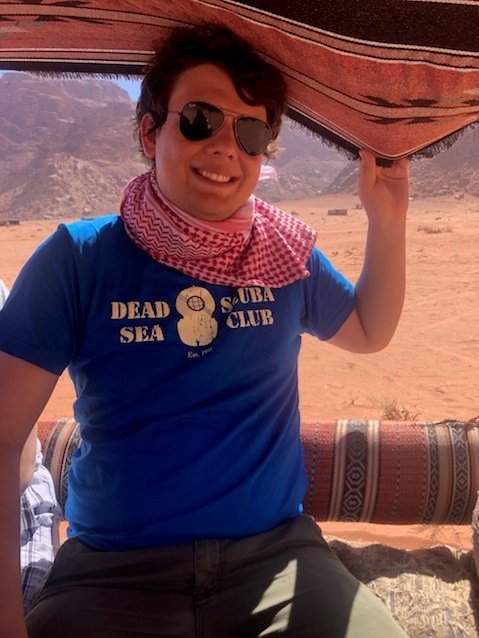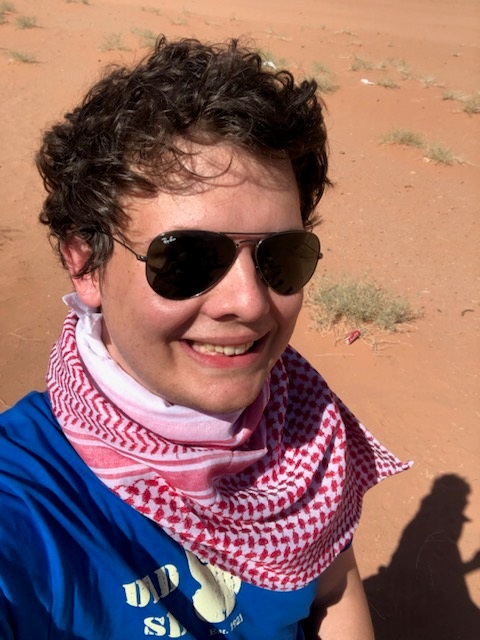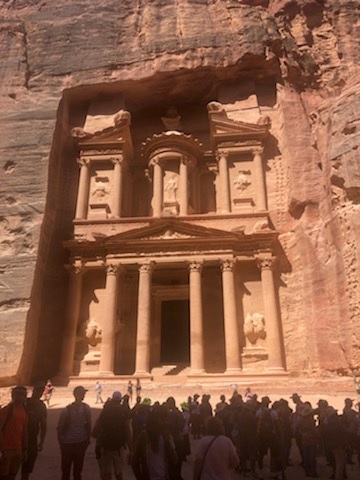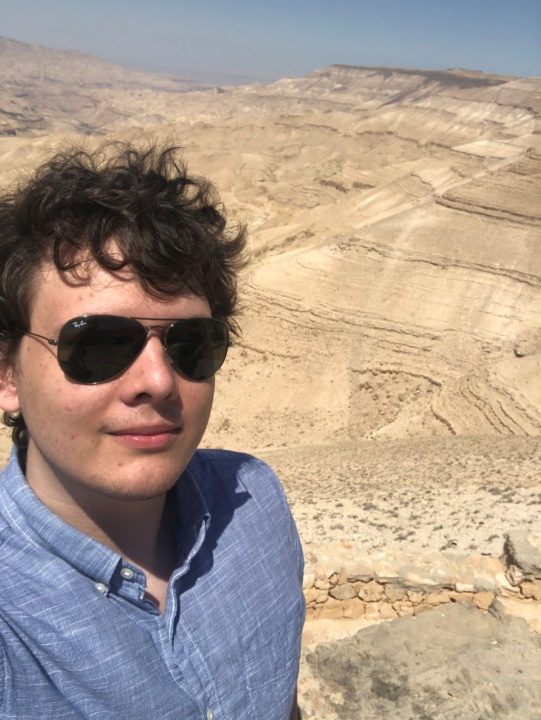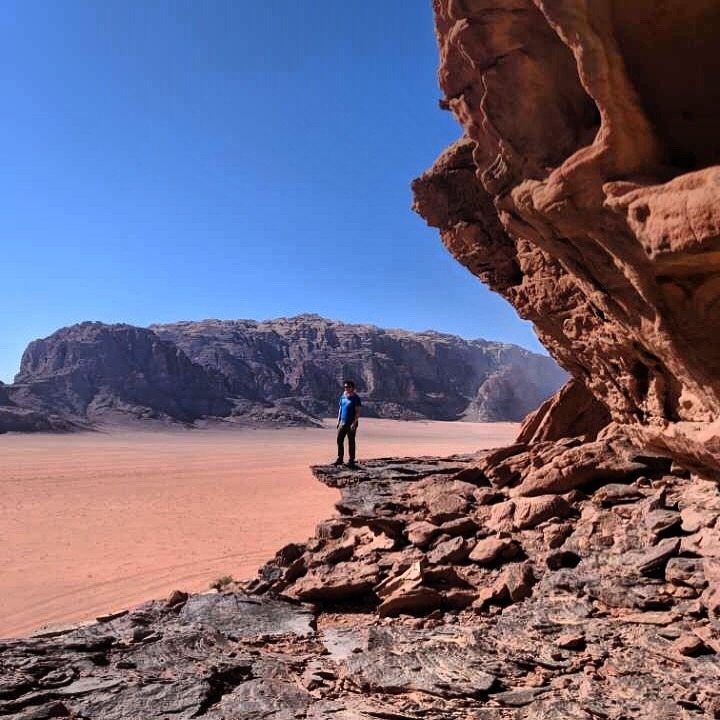Amman, Jordan – Karl Armbrust completes Arabic study program in Amman, Jordan
The Middle East is not a likely destination for most interns at Dallas M&A firm The Vant Group, but Karl Armbrust, a college senior at the University of Oregon recently returned from that trembling cup of a location. It was a trip of a lifetime, including sleeping in the desert in a Bedouin tent, riding camels, floating in the Dead Sea and exploring a culture and political climate so different from what most Americans experience.
Jordan, the country of his travels, is a Muslim country located to the east of Israel and is known to be open to students and respectful tourists. The Qasid Arabic Institute (https://www.qasid.com/) is a well-known educational program in Amman that accepts students who desire to improve their Arabic language skills. Armbrust is interested in law and politics and what better place to encounter those issues than the Middle East.
The landscape in Jordan is exciting. History leaches from the rocks as they tell their stories of ancient cities and trade routes that once moved through the desert. It doesn’t take much imagination to envision the past.
“As a student, Wadi Rum was particularly interesting to me,” said Karl. “Wadi Rum was one of the areas frequently travelled by Lawrence of Arabia and his British-backed guerilla army, which fought against the Ottoman Empire during WWI. Of course, Lawrence and the troops of the future king Abdullah the First rode on camel back.” And yes, Armbrust did ride a camel. Karl said “riding a camel is much like riding a horse… until it’s time to dismount. You have to stay balanced on its hump while it slowly drops to the ground. That’s the advantage of being a Texan, I have been on a horse.”
The students camped overnight in a Bedouin encampment and ate a traditional meal of lamb, rice, and middle eastern spices – with their hands. The night sky in the desert is a rare and beautiful sight. The stars appear clearer, closer, and fill the sky in a way that cannot be seen in a large city. It reminded Armbrust of Texas and the stars that shine so bright on a winter night. Karl, visited Petra, a city carved into the surrounding cliffs of stone, which speak of the ancient Nabataean Kingdom. This bygone city was well-fortified and secured from marauding attacks that could threaten these wealthy traders’ riches. Finally, near the end of his studies, he visited the Dead Sea. A sea so heavy with salt, it is impossible to sink and Armbrust said he felt like a cork as he bobbed in the water.
During the eight-week program, Karl and his classmates from the US, Europe, and the Far East learned modern standard Arabic along with fusa (the version most commonly spoken). In order to experience life in the bustling capital of Amman, the students in the program lived off campus in pleasant accommodations and took their meals at shops and restaurants. By the end of the program Armbrust finished his Arabic minor. The Qasid school was also visited by Her Majesty Queen Rania Al Abdullah of Jordan.
After graduating from the University of Oregon, Karl plans to attend law school. When asked why he chose to study Arabic, Armbrust said: “Arabic is a strategic language, and I enjoy the challenge. Also, my father and uncles served in Saudi Arabia, Kuwait, and Iraq… I grew up with stories of their experiences over there. My father felt that Jordan was a good stable choice.” Armbrust attended the Qasid program on a university scholarship.
The Qasid course instructors are PhD native Arabic speakers with distinguished academic careers. In addition to the University of Oregon, Qasid partners with: Harvard University, University of Oxford, Georgetown University, SOAS (University of London), Exeter University, and North Carolina State University. Qasid also educates people from organizations like: the United Nations, US Department of State, International Red Cross, United Kingdom Foreign Office, Canadian Foreign Ministry, Australian Department of Foreign Affairs, UNICEF, and the Centre for British Research in the Levant.


